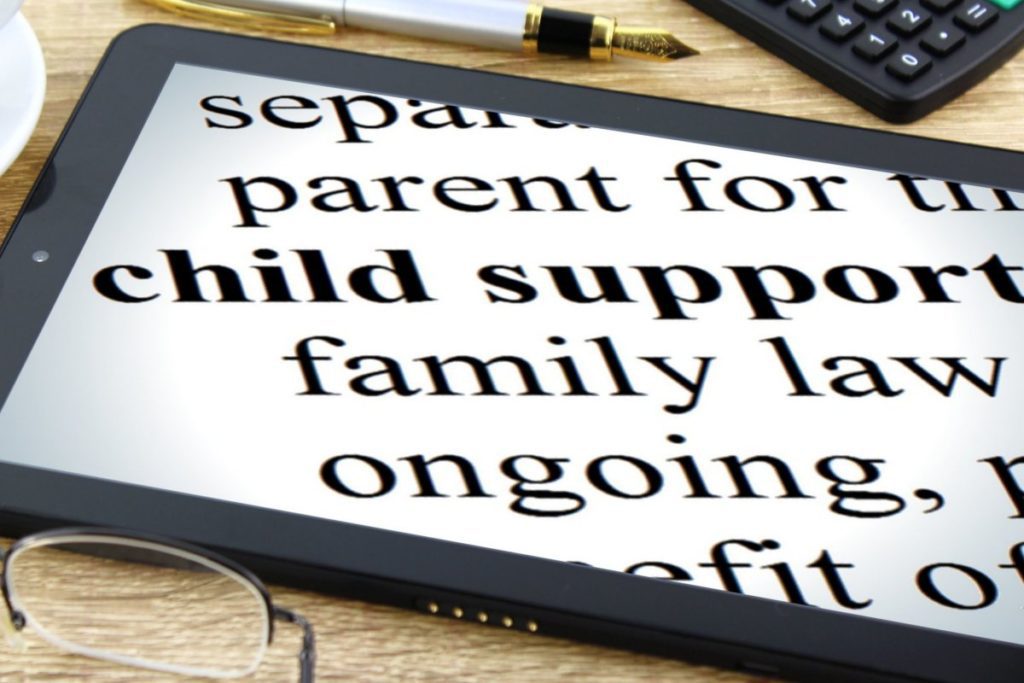Alimony and child support may sound like the same thing and thereby confuse most people, but they are dissimilar. They are among the topmost issues that people considering divorce should deliberate on well enough.
For anyone thinking of filing for divorce, the two terms may come into play for the entire process. For a better understanding of what each us, read through the definitions, comparisons, and differences between them.

What is Alimony?
Alimony is defined as a legal obligation that a court gives to an individual to provide financial support to their ex-spouse once they undergo a marriage dissolution, separation, or divorce. The obligation comes from the family law or divorce law of each jurisdiction in question.
Alimony is also referred to as aliment (in Scotland), maintenance (in England, Wales, Northern Ireland, Canada, and Ireland), spouse maintenance in Australia, and spousal support in the U.S. and Canada.
It should be understood that alimony is not child support as the tenets of each differ completely.
Alimony is Paid Until:
- The date the presiding judge set.
- The former spouse (the recipient) remarries.
- A court determines that after some time, the receiving spouse has not made any efforts to become self-sufficient.
- Other significant events happen, for example, if the paying spouse retires.
- If one of the spouses dies.

What is Child Support?
Child support, in public policy, family law, and divorce law is an ongoing and periodic payment made by a parent towards the care-giving of their children. The payment is determined a family or divorce court judge and requires the earning parent to support the children.
The custody rights may be with the ex-spouse of the supporting parent, guardian, caregiver, or the state. Child support, also called child maintenance is determined after a marriage is dissolved, there is a separation or divorce and if it is determined that the children in question may suffer after that process.
Child Support is Paid Until:
- The child is question is no longer eligible for child benefits.
- If the supporting parent dies.
- If the paying parent becomes ineligible to pay because of such reasons as being a student or prisoner where they qualify for the “Nil Rate”.
- The custodian parent remarries and/or stops being the main caregiver.
- The custodial parent does not need the support anymore.
Difference Between Alimony Vs. Child Support
The following are some of the striking differences between alimony and child support:
-
Meaning of Alimony Vs. Child Support
The term alimony refers to a legal obligation issued by a divorce or family judge to a partner to send financial support to their ex-spouse after a marriage dissolution, separation, or divorce. Conversely, child support is a legal obligation given to a parent to be making financial contributions for the upkeep of their children if they separate, divorce or their marriage is dissolved.
While alimony is paid to the ex-spouse who is not earning for their upkeep, child support is issued for any child from the dissolved marriage. The child can be with an ex-spouse, guardian, or the state.
-
Purpose of Alimony Vs. Child Support
The objective of alimony is to help a non-earning ex-spouse while child support is for helping any children born out of a dissolved marriage.
-
Requirements and Conditions of Alimony Vs. Child Support
- While child support requires there be children from the dissolved marriage, alimony does not have that condition.
- For alimony, the receiving ex-spouse must be unemployed or proof they cannot support themselves while in child support, the non-custodial partner must provide assistance for the upkeep of the kids without the need of such proof. However, several conditions may limit this condition, for example, if the custodial parent does not need the support.
-
Who Pays Alimony Vs. Who Pays Child Support
Alimony is paid by the earning or self-sufficient ex-partner to the unemployed or non-self sufficient ex-partner. When it comes to child support, the financial support can even be made by the low earning ex-spouse as the determinant is who is the custodial parent.
-
Taxation
Because alimony is considered a type of income, it is taxed while child support is not subject to any taxation laws.
-
Penalties of Not Paying
Not paying child support is considered a crime in most American states as well as other countries. Therefore, if one misses or is late in making the submissions, there can be serious implications or repercussions. On the other hand, late payment of alimony is not considered a crime although missing it, all the same, can constitute legal implications.
-
The determinant of the Payments
For alimony, the court makes the determination depending on where the couple concerned was living before their separation. On the other hand, the case of child support is based on several factors. However, the court determines what is best for the child in question.
Alimony Vs. Child Support: Comparison Table

Summary of Alimony Vs. Child Support
For most people undergoing a divorce proceeding, the first thing they think of is child support. However, such people may also be required to pay alimony, in other words, referred to as spousal support. The two, even though they are determined by the court ruling on the divorce case and seek to provide financial support, they have unique characteristics that make them different from each other. The main idea here is for one to know what they have been ordered to pay, how much, and over what period.
- Difference Between Minecraft and Terraria - August 7, 2020
- Difference Between Alliteration and Onomatopoeia Poems - July 25, 2019
- Difference Between Certification and Licensure - July 24, 2019

